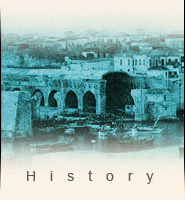
Though slow in reaching Greece, the repercussions of the 1929 global crash were painful in the extreme: the state declared itself bankrupt and in 1932 devalued the drachma. Wages were cut and agricultural produce often went unsold. In Heraklion too, strikes, demonstrations and protests by various social and professional classes were relatively frequent phenomena.
The town's most active trade unions were those of the sultana workers, bakery workers and shoemakers. Illustrative of the growth of trade unionism in the town is the fact that in early 1936, 22 unions were members of the Heraklion Workers' Centre (Greek E.K.I.). However, over the following months the state machinery adopted an increasingly tough stance, and on 20th June 1936 the E.K.I. was banned from operating. A few weeks later the Metaxas dictatorship was imposed.










